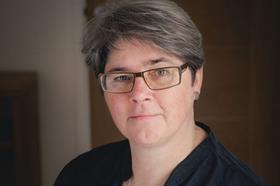Readers of the Gazette article Section 28 - living two lives, may be heartened to learn that the ECtHR has recently ruled on a Lithuanian Case of Macat v Lithuania (Application no. 61435/19) with strong parallels to the suppression of ‘Jenny Lives With Eric and Martin’ intended by Section 28.


The claimant, the late Neringa Macat, was an acclaimed and openly lesbian children’s author. Macate had volunteered at a helpline for young people and had seen first-hand the impact of bullying on victims. So she wrote 'Amber Heart', a book of fairy stories for children aged between eight and 10, which addressed issues of stigmatisation, bullying, divorce and immigration, and encouraged tolerance and respect for minority groups, including people of different ethnic origins, physical abilities, and relationships between same sex couples.
Four out of the seven beautiful fairy stories in Amber Heart depicted loving relationships between men and women and two stories depicted same sex relationships and marriages.
The Lithuanian media sensationalised the book with headlines: 'Fairy tales about non-traditional love in kids’ backpacks!' This was picked up by politicians and referred to Lithuania’s Inspectorate of Journalist Ethics.
The Inspectorate concluded ‘Amber Heart’ contravened Lithuanian education legislation as 'harmful to minors' because ‘Amber Heart’ encouraged different concepts of marriage and family from the definitions in Lithuania’s Constitution and Civil Code which did not recognise same sex partnerships.
The Inspectorate ruled that copies of ‘Amber Heart’ should bear a warning sticker that the book 'contained information which could be harmful to children under 14.'
Macat twice pursued the case based on discrimination and freedom of expression through the Lithuanian courts. After the first set of judgments, the Lithuanian Supreme Court quashed the lower courts’ rulings and the case was reheard, but to no avail.
So, as dogged as her loveable characters, Macat took her case to the ECtHR helped by the International Lesbian, Gay, Bisexual, Trans and Intersex Association. Sadly Makat died of cancer, but her mother courageously continued the proceedings.
The story ends more happily now, as does Macat's spellbindingly controversial tale of The Princess, The Shoemaker’s Daughter, and the Twelve Brothers. Unlike our own jurisprudence, the ECtHR had the benefit of the well-established Strasbourg principle of evolutive interpretation whereby 'the Convention is a living instrument…which must be interpreted in the light of present day conditions' (Tyrer v the United Kingdom, 25 April 1978). This enabled the ECtHR to reassure those of us living in what Section 28 would have labelled as 'Pretended Families' that: 'Promoting one type of family at the expense of another is never acceptable under the [European] Convention.'
The ECtHR unanimously held (following compelling case law and international comparisons), that Lithuania’s measures against ‘Amber Heart’ were a violation of the Convention’s right to freedom of expression in Article 10. The court found that 'where restrictions on children’s access to information about same-sex relationships are based solely on considerations of sexual orientation and where there is no basis in any other respect to consider such information to be inappropriate or harmful to children’s growth and development, then [the restrictions] do not pursue aims that can be regarded as legitimate…'
A joint partly dissenting opinion by five of the ECtHR’s judges considered that there had also been discrimination violating Article 14 of the Convention: 'We believe this case provided the Court with an invaluable opportunity…to address one of the ways in which homophobic prejudice is often manifested nowadays…'
The judgment is available here and gives readers a fascinating insight into the evolution of LGBTI rights internationally. It illustrates how vulnerable LGBTQ+ rights are to erasure if caught in political crossfire (as is happening here in the UK with the issue of Trans rights and Scottish independence). It is also a timely reminder that if the UK elects to leave the European Convention on Human Rights, recourse to the ECtHR for violations of human rights will be lost, and victims will be completely exposed to the whims of domestic prejudice.
Helen Randall is a consultant at Trowers & Hamlins LLP and Bridget Garrood is a consultant at Ian Walker Family Law & Mediation Solicitors. They are both members of the Law Society’s LGBTQ+ Solicitors’ Network Committee






























